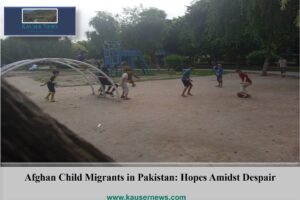In the aftermath of the Taliban’s takeover of Kabul in August 2021, the world has closely monitored the situation in Afghanistan, especially concerning the rights and safety of women. In a shocking turn of events, recent investigations by the Kauser News Agency have revealed an alarming pattern of attacks against Afghan women in Kabul, perpetrated by women who have sought refuge in exile.
Sources indicate that the motivation behind these attacks lies in ideological differences among Afghan women. The complex and deeply rooted socio-political landscape of Afghanistan has led to divisions even among women, with some adopting extremist views that align with the Taliban’s oppressive agenda.
The exiled Afghan women, having experienced freedom and safety in their new homes, have reportedly formed clandestine groups dedicated to silencing their counterparts in Kabul. This alarming trend raises questions about the extent of radicalization among Afghan diaspora communities and the potential impact on the already vulnerable women in Afghanistan.
As news of these attacks surfaces, there is growing concern within the international community about the safety and well-being of Afghan women. Human rights organizations, women’s rights activists, and various governments have expressed their deep concern and condemnation of the reported attacks.
The international community now faces the challenge of addressing not only the ongoing human rights abuses by the Taliban in Kabul but also the unexpected threat posed by extremist elements within the Afghan diaspora.





